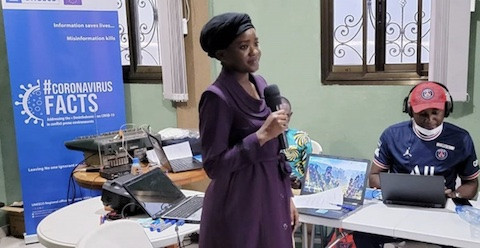
GCED Basic Search Form
Quick Search
当前位置
新闻

A year and a half of global crisis during the COVID-19 pandemic has put lives, public health, livelihoods, economies and in extension also political systems and social fabrics under unprecedented strain. The pandemic and associated movement restrictions have also accelerated the evolution of digital information sharing patterns and use of digital communication tools.
In such context, and with the expertise of the sector of Communication and Information of the UNESCO, the International Pace Day will be an opportunity to discuss about the role played by social media in promoting peace and enhancing access to information; how to prevent them being used to polarize society, amplify disinformation, increase intolerance or fuel hate and conflicts and, how to ensure the respect for freedom of expression while curbing potential online harmful content?
Today, innovations in technology have changed the way people seek, receive and impart information and connect with each other. With social media, in particular, people are enabled to become producers of content and information rather than just passive consumers. The role and power of social media in shaping social and political changes, violent or non-violent, have therefore come under increasing scrutiny in recent years.

To address those new challenges and curb online harmful content while protecting freedom of expression, UNESCO and the European Union have partnered on two global projects: #CoronavirusFacts and Social Media 4 Peace, both ambitioning to tackle harmful content and disinformation. The conference examined pressing global issues of social media content governance to counter online hate speech and disinformation and foster mutual respect and the need to develop common principles for a global online space.
Three panels were organized with five to six panelists among high level representatives from the European Union, United Nations, UNESCO, social media platforms and governments. The Panel 2 saw the participation of Salah Khaled, Director of UNESCO, Regional Office for Central Africa. The Director Salah also recognized that if social media can be used to increase civic mobilization and access to the right information, they can also fuel hate and conflicts, contributing to new threats to peace.
The project '#CoronavirusFacts: Addressing the ‘Disinfodemic’ on COVID-19 in conflict-prone environments' leverages the pivotal role of freedom of expression and access to information to address information needs in times of COVID-19 and to tackle the massive wave of disinformation which threatens to impact democracy, sustainable development and stability around the world.
URL:
https://en.unesco.org/news/countering-online-disinformation-and-hate-speech-foster-peace
